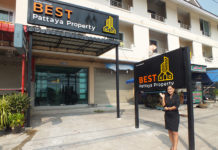Although the country’s overall economy is slowing down, the real estate market continues with new property law to access Foreign ownership.
Thai property law generally restricts foreigners from buying or owning property, lands and some specific assets under freehold title. however, it’s currently possible in the following circumstances :
– The Board of Investment (BOI) and the Industrial Estates Authority has the power to permit promoted companies to own land for their business.
– Permission can be granted under the Petroleum Act for use in approved projects.
– Banks and financial institutes that have become foreign-owned.
– A foreigner who invests at least 40 million Baht in authorized securities in Thailand may buy up to 1 rai (1600 sq.m) for residential purposes only of the owner and their family.
**This does not cater to the majority of foreign investors. The following are legitimate ways for a foreigner to purchase a property interest in Thailand.
Leasehold Property
A recent change in the law allows leases for industrial or commercial purposes to be for a term of up to 50 years. This again is renewable for periods of 50 years. The majority of authorities agree that any such renewal clause is enforceable as against the original lessor not, however, as against a transferee lessor. Any lease of 3 years or more must be registered on the title to the land at the appropriate land office. For the lease to be enforceable for any term beyond three years.
Company Ownership of Freehold Property
A Thai Limited Company can purchase land as a juristic person. The company must be allowed to own land and invest in land under its objectives and Articles of Association. Foreigners can hold a maximum of 49% of the shares in such a Thai Limited Company. Thai actual investors must own the balance. It is also vitally important that annual accounts are completed and taxes paid on time.
Land Title Deeds
Additionally, although far less common, there are several other types of legally recognized Chanotes in existence. These different types of Chanotes may not contain boundaries and measurements as accurate as a Land Act Chanote. Still, they are treated the same by the Land Department as far as transfer and registration of ownership is concerned.
In brief, the many varying land title documents encountered in Thailand stem from the complex, and sometimes conflicting, history of land development and ownership documentation. Even an adequately issued Chanote can be subject to legal attack. With this in mind, it is advisable to conduct a thorough search of the history of the land in question and the title documents associated with it. The purchaser of land acquires any defects in the title and potential claims against it along with the land itself.
Legal Due Diligence by qualified and experienced attorneys familiar with the history of land documents and procedures of the Land Department should always be conducted before purchasing any land. This process will generally include a complete review of the title history of the land, encumbrance search, land site inspection, and verification of land use and zoning regulations.
Ownership of Condominiums
The rules concerning the ownership of condominiums are similar to those concerning land. Condominium units have a form of freehold title deed and ownership is transferred at the Land Department which foreigners can own. Foreigners, both natural persons and foreign-owned companies can hold up to 49% of the area of a condominium project. For those who do not have resident permits, there must be proof that foreign money was brought into Thailand to purchase the unit. Foreigners may also lease condominium units in the same way that they may lease land or structures.
Ownership of Structures
Structures may also be owned outright by foreigners in their name. They should have a “superficies” (i.e. the right to hold structures on land they do not own) over the land registered in their name on the title deed to the land the structure is on. If they are the first owner of the structure, they should also have evidence that they built the structure such as payment records to the builder, a building contract and their name on the building permit. If they are a transferee owner of the structure, the transfer is registered in their name at the relevant land office and requires a 30-day public notice period before the transfer.
Transfer of Ownership
A written registration transfers ownership of land and structure at the authorized Land Department. The transaction is recorded on the title deed and other documents. All supporting documents are kept in official records.





































